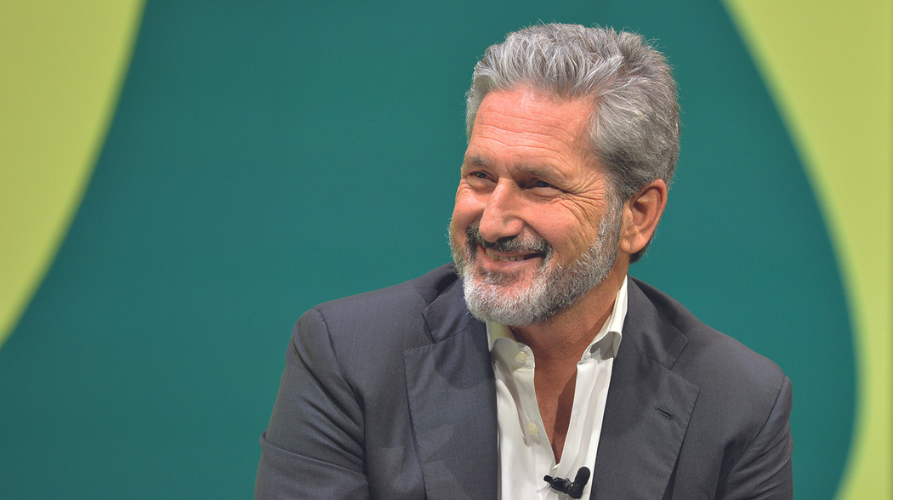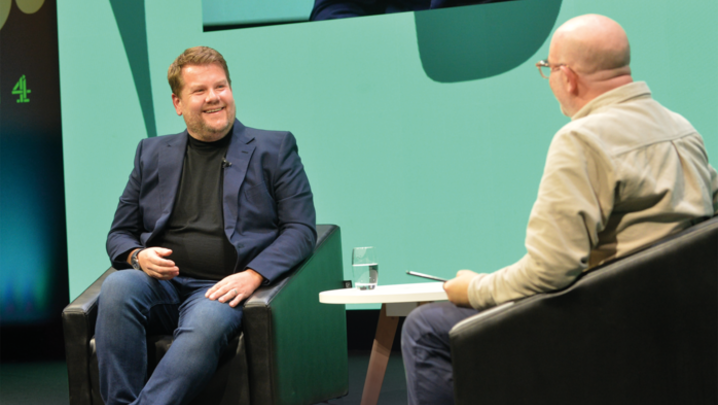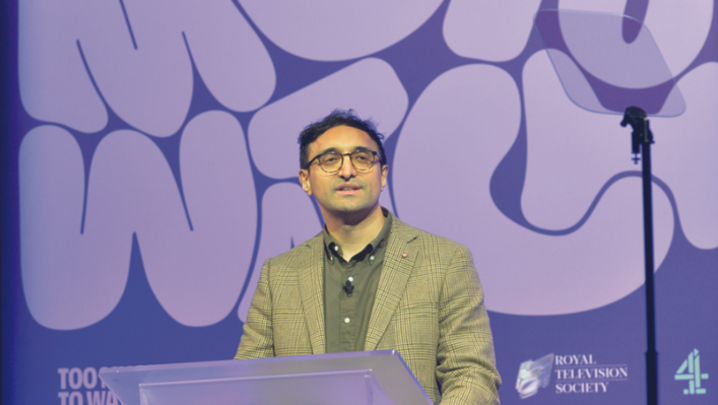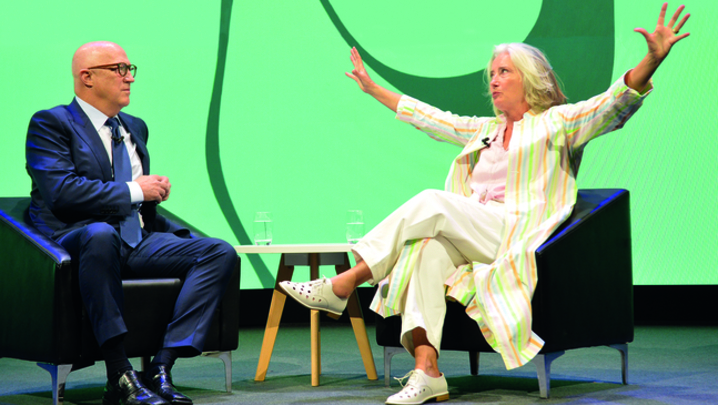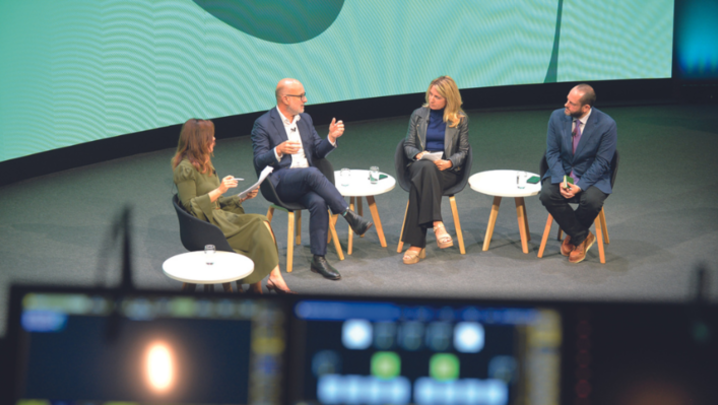Liberty Global’s CEO is bullish about a future in which he foresees no letup in the demand for content
Liberty Global’s decision to sell its stake in All3Media was “bittersweet”, said its CEO and Vice-Chair Mike Fries. The telecommunications giant and its partner, Warner Bros. Discovery, are in the process of selling the production and distribution company responsible for Fleabag, Gogglebox and The Traitors. But the sale had “nothing to do with the business itself – we love Jane [Turton] and what All3 does.
“You all know the story: 50 wonderful studios, £1 billion of revenue – and pretty much double that since we’ve been investors – hundreds of awards. It’s done an incredible job. But the industry is changing and studios are searching for scale, especially pure-play studios such as All3Media.
“[With] Warner Bros. Discovery, we decided that this might be a business that has greater value on a larger platform and help transform other studio businesses.”
Even though talks with ITV – itself part-owned by Liberty – fell through, Fries revealed that “pretty much everyone you can think of is interested. Let’s see what happens. If we end up continuing with [All3Media], that would be fine with me as well.”
The CEO – who started at Liberty in 1990 as its fifth member of staff, as interviewer Katie Prescott reminded the Cambridge audience – recently relocated from Colorado to the UK. Here, the company also has stakes in Vodafone, Formula E – and Virgin Media O2, whose telecommunications products include cable TV, broadband and phone services to 5.8 million customers.
Referencing the theme of the conference, Fries didn’t agree that there was “too much to watch”. Rather, he said: “The problem is that it is too hard to find and it’s getting too expensive. So what [Virgin Media O2] and Sky and others are trying to do is create seamless navigation, voice-controlled search and metadata.
“If you want to want to watch a show, you don’t have to Google which network it is on. You just ask for it and it pops up. That will make this a lot easier.”
Looking ahead, Fries noted that the growth areas for Liberty were in technology and infrastructure, particularly data centres. While he admitted it was “boring for this crowd”, there was plenty to be gleaned from where its $3 billion of venture capital funding was being spent.
He said: “Basically everything you’re doing on the internet resides somewhere in the cloud. And that cloud isn’t in the sky, it’s in a building this size, on hundreds of computers and servers.
“That business is booming. Infrastructure is on fire. Whether it’s AI or the metaverse or streaming, the amount of data moving around this country is growing 20%, 30% a year.”
AI is another key area for Liberty’s venture portfolio. One of its main new investments is in Metaphysic, the company responsible for the holographic concert ABBA Voyage.
In a conference obsessed by predictions of how AI will reshape the screen industry, Fries made no bones that “this is not hype. This is real. In 10 years’ time we will look back, and it will be more transformational than the internet has been over the past 30 years.”

He added: “ChatGPT was an iPhone moment,” citing a thought leader at US tech company Nvidia he had spoken to the previous day. “All of a sudden we could each talk to these massive language models and get information back. [ChatGPT gained] 100 million users in two months – that’s got everyone focused on what’s been happening behind the scenes.
“Everybody here is curious about it, but should also be engaging in it,” said Fries. “AT&T said the other day that it wants all 90,000 of its employees to utilise AI by the end of this year in some shape or form. That’s change management.
“I worry about the same things that you are all worried about. But I’m pretty excited.”
The writers’ and actors’ strike in the US is arguably the most high-profile challenge to AI yet. When asked for his opinion, Fries suggested that this resistance to AI is “the fear of the unknown. It’s probably not the best time to negotiate because, in a few years, you might know a lot more about AI. But maybe their view is to start here and, in three years when it starts to settle down, then they’ll take it to another level.”
Discussion turned to Disney’s recent deal with Charter Communications – the US’s second-largest cable company – after the former finally reached an agreement to return most Disney content to Charter services.
Fries described the resolution as a “win-win”. When Prescott suggested it was an “uneasy truce”, Fries countered that “an uneasy truce is a win-win, because it could have gone either way”.
The fallout was a clear sign that the traditional symbiosis of cable companies and content providers is in jeopardy. “Content wanted an open marriage – that’s how I see it,” Fries said. “Their view was: we want our cake and we want to eat it, too.
“We want to continue to be paid by you in this traditional way where we can make rate increases all the time, but we also want to take our best content and put it on the streaming platforms because we see the future there. That’s a difficult position. It was inevitable that Charter and Disney would have this conflict.”
Given the “arms race” in content investment between the global media giants, Fries considered it understandable that old strategies were being questioned. “What people are doing is saying: ‘Let’s be sure we have economic models to support [investment in content],’ whether that means sharing content, or licensing it, or putting it into theatres. Disney is still going to make great content. I don’t see that changing.”
For all the challenges, opportunities, friction and double-edged swords on the horizon for the media industry, it was reassuring that demand from audiences showed no sign of cooling. Looking into his crystal ball, Fries suggested that demand would only increase: “I think consumers want more. They want more content, they want more virtual reality, they want more interactivity, they want more connectivity. Which is a good place for all of us to be, because it’s an ecosystem that every year consumes more of it, and you can’t say that about every industry.”
As tech merges with its content – Fries referenced TikTok, YouTube and Instagram – he predicted that the scope of tech companies would broaden. “You see what big tech is doing and you, too, would do it if you ran these companies,” he said. “In the US, YouTube has all the NFL football rights. Amazon buys MGM, and it’s doing a bunch of sports deals. Apple is making great content and creating VR headsets.
“Everyone’s blending into the other person’s business because there’s opportunity, and there’s demand.
“It’s an exciting time to be in any aspect of this business. There’s lots to be worried about, but it’s an exciting time to be in this ecosystem.”
In Session Six, ‘International keynote: Mike Fries’, the CEO and Vice-Chair of Liberty Global, was interviewed by Katie Prescott, Technology Business Editor of The Times. The producer was Helen Scott. Report by Shilpa Ganatra.

